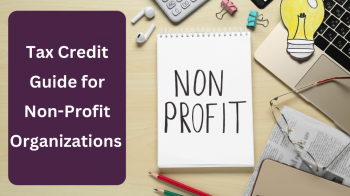
Common Mistakes to Avoid When Applying for Tax Credits

Applying for tax credits can be a game-changer for small businesses, offering significant financial relief and incentives for growth. However, the process can be complex, and even minor errors can lead to delays or disqualification. To help you navigate the application process smoothly, here are some common mistakes small businesses make when applying for tax credits and tips on how to avoid them.
1. Not Knowing What Credits Are Available
One of the biggest mistakes small businesses make is simply not being aware of the tax credits for which they may be eligible. Tax laws are complex, and credits can vary by industry, location, and even the specific activities your business engages in.
Tip: Regularly review the tax credits available at the federal, state, and local levels. Consider consulting with a tax professional who specializes in your industry to ensure you’re aware of all opportunities.
2. Incorrectly Estimating Eligibility
Businesses sometimes assume they are eligible for a tax credit based on a superficial understanding of the requirements. Conversely, they might assume they aren’t eligible when, in fact, they are.
Tip: Thoroughly research the eligibility requirements for each tax credit. If you’re unsure, seek advice from a tax advisor or use a tax credit service that can evaluate your eligibility with precision.
3. Failing to Maintain Proper Documentation
Tax credits often require meticulous documentation to prove eligibility. Whether it’s keeping track of expenses, employee hours, or specific business activities, poor record-keeping can lead to the denial of a credit.
Tip: Establish a system for documenting all relevant activities and expenses as they occur. Use digital tools and software designed for small business accounting to keep your records organized and easily accessible.
4. Missing Deadlines
Tax credits are time-sensitive. Missing application deadlines is an all-too-common mistake that can result in lost financial benefits.
Tip: Keep a detailed calendar of all tax credit deadlines and set reminders well in advance. Assign responsibility to a specific team member or tax professional to ensure deadlines are not missed.
5. Overlooking State and Local Credits
While many businesses focus on federal tax credits, state and local governments often offer additional incentives that can further reduce your tax burden.
Tip: Don’t just stop at federal credits. Research state and local credits that may apply to your business. These can sometimes be more accessible and offer significant savings.
Tax Credit Group Can Help
Applying for tax credits can be a significant boon to your business, but it’s important to approach the process with care. By avoiding these common mistakes and taking advantage of professional resources, you can make the most of the opportunities available and keep your business on solid financial footing.
If you need help navigating the complexities of tax credits, our team is here to assist. Contact us today to learn more about how we can support your business in maximizing its tax benefits. Give us a call at (563) 583-2115, or schedule an appointment with one of our advisors.




















